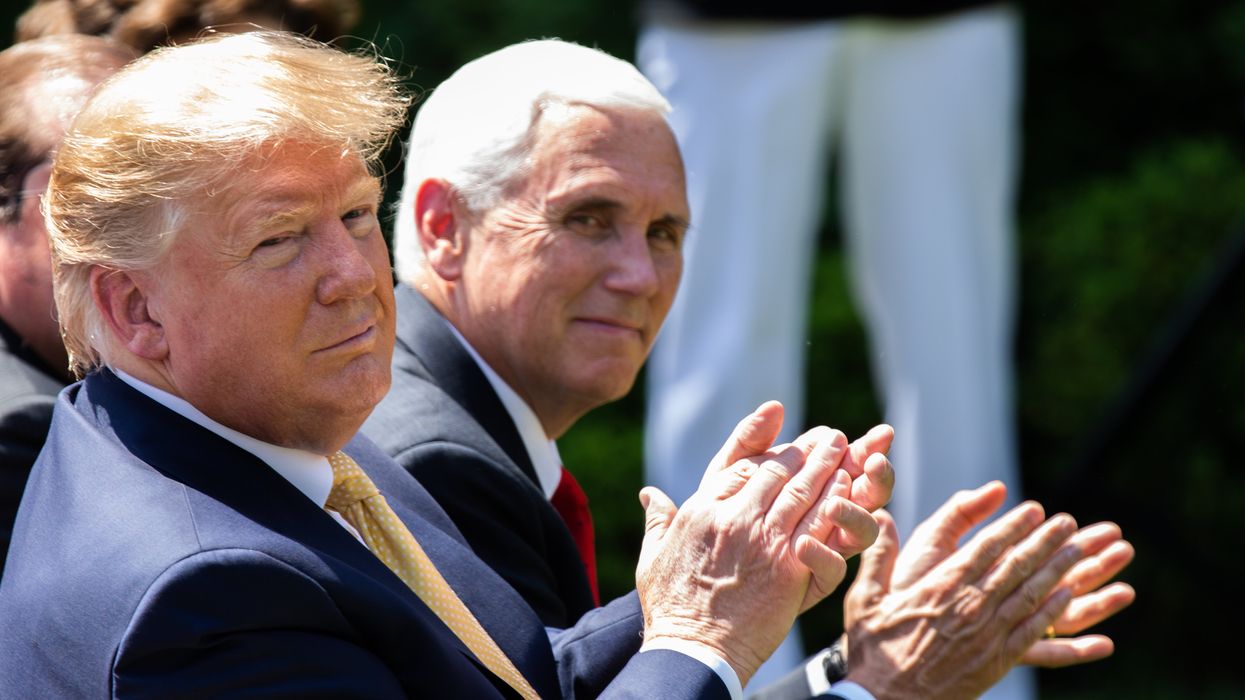Schmidt is a syndicated columnist and editorial board member with the St. Louis Post-Dispatch.
Thought leaders have long understood that honor and integrity are imperative when choosing the leader of an idealistic society. America’s Founding Fathers understood this as well and therefore established the Electoral College, making electors a set of guardians within a system that would more times than not select the best person to be president. The Founders also thought these electors should be of upright character as well.
Much of what we learned about how the Founding Fathers decided to set up the government of the new American experiment came from the Federalist Papers. The 85 essays that make up the Federalist Papers were written under the pseudonym “Publius,” the pen name for Alexander Hamilton (the first secretary of the Treasury), James Madison (the fourth president and John Jay (the first chief justice).
Federalist 68 described the Electoral College and noted the way a president is elected, “if not perfect, it is at least excellent.” Electors are chosen by each state, and then they assemble and vote in their state. This was designed to promote a “detached and divided situation that will expose them much less to heats and ferments.” The electors, or immediate agents in the election, as Hamilton called them, “will at least enter the task free from any sinister bias.”
Hamilton wrote that the Electoral College process affords moral certainty and “that the office of President will never fall to the lot of any man who is not in an eminent degree endowed with the requisite qualifications.” The Founders thought the Electoral College would produce “a constant probability of seeing the station filled with characters preeminent for ability and virtue.”
Approximately 234 years later, a fraudulent plot was underway in order to obstruct the certification of Joe Biden’s victory and undermine the very process our Founders envisioned. While Special Counsel Jack Smith is still conducting his investigation, the American public has learned some of the details of the fake electors plan.
Seven states – Arizona, Georgia, Michigan, Nevada, New Mexico, Pennsylvania and Wisconsin – that Donald Trump lost in 2020 were found to have slates of fake GOP electors who falsely claimed Trump had won their electoral votes. The plan, which was based on a flawed legal theory, called for Vice President Mike Pence to swap official electors with an alternate slate during the certification process, thus changing the outcome of the Electoral College vote and the overall winner of the presidential race.
Testimony has revealed that Trump was fully aware of the fake electors plan. CNN recently reported that two days before the Jan. 6 insurrection, the Trump campaign realized that the fake elector certificates from two critical battleground states (Michigan and Wisconsin) were stuck in the mail. Trump campaign operatives scrambled to fly copies of the phony certificates to Washington, D.C., to try to get the documents to Pence while he presided over the Electoral College certification. According to emails and recordings obtained by CNN, “The operatives even considered chartering a jet to ensure the files reached Washington, DC, in time for the Jan. 6, 2021, proceeding.”
There are investigations in each of the seven states and some fake electors have already been charged.
The Founding Fathers hoped the Electoral College would add an additional layer of protection to avoid corruption in the choosing of a worthy leader as they worried that a faction of partisans might conspire to control an election. In the case of Donald Trump and the 2020 election, their worst fears came true.
At the end of 2022, Congress passed and Biden signed an omnibus appropriations bill that included the Electoral Count Reform and Presidential Transition Improvement Act. This welcome improvement to the ambiguous Electoral Count Act of 1887 strengthens the institution of the Electoral College. But unless we as a society can reestablish the norms laid out by the Founders, the events of Jan. 6 can and most likely will occur again. It is imperative that we go back to the foundations of our founding, reduce partisan factionalism and start holding our electors to the highest standards.




















Trump & Hegseth gave Mark Kelly a huge 2028 gift